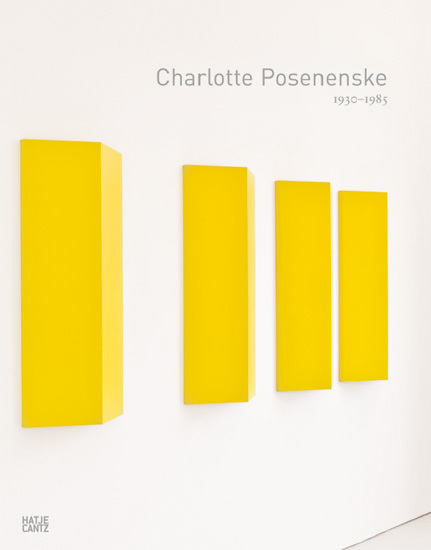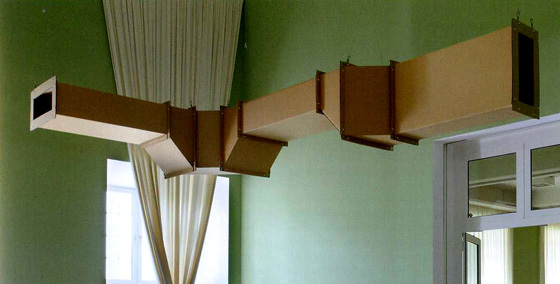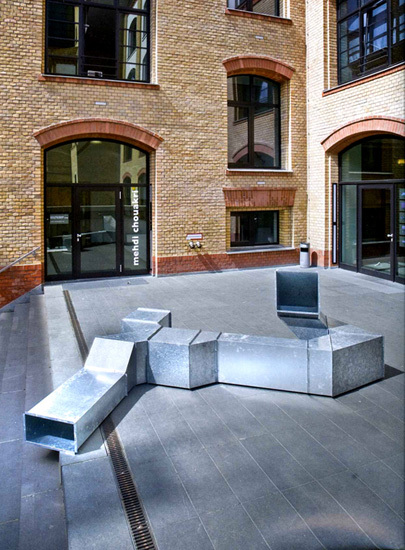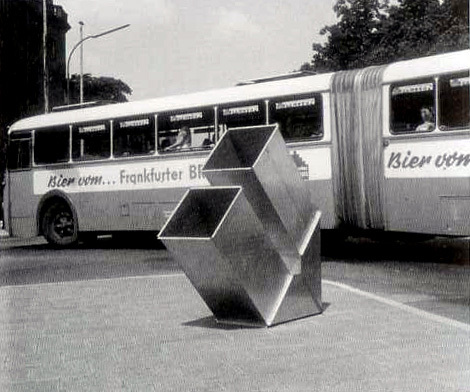Charlotte Posenenske
Text by Susanne Junker
Berlin, Germany
23.11.09
Charlotte Poseneske is a German artist who created minimalist and performance-like sculptures and reliefs in the 60s.
Charlotte Poseneske is a German artist who created minimalist and performance-like sculptures and reliefs in the 60s. Having the claim to avoid any subjective artistic statements she preferred to finish her work in truly objective materials like chipboard, corrugated cardboard and steel sheets.
In a further step she experimented with repeatability: "The things I make are modifiable, as simple as possible and easily reproducible. I produce series because I don't want to make single pieces for single persons. The pieces shall have the objective character of industrial products." A position rather usual for a designer, but very unusual for an artist. Of course this doesn't explain the effect or humour of a casing made of folded cardboard, which grows out of a corner like a furunculous trunk, or a pair of rectangular tubes sticking on a plastered facade as if the ventilation system had gone crazy.
Rectangular tubes series DW, reconstruction, corrugated cardboard, Documenta 12, Kassel 2007
Those extremely reduced three-dimensional works, which now define her name, all originate from the short period from 1966 - 1968. Afterwards she stopped her creative work out of artistic and sociopolitical protest – not a gag in order to push the sales value, but sullen severeness. Only in 2007, on the occasion of Documenta 12, she was quasi rediscovered, yet her true followers obviously never really forgot her. Reconstructions are now being authorised by her longtime companion and are traded in galleries again.
Rectangular tubes series D, reconstruction, sheet steel, gallery Mehdi Chouakri, Berlin 2008
The monograph at hand primarily shows reconstructions and the extensive collection of paintings and drawings, but still lets Charlotte Posenenske come to word in the book's sweeping text part:
"Dear Gentlemen!
I thank you for your invitation to take part in the competition for the business and residential centre in Sieghorst, Bielefeld.
The settlement of Sieghorst is a conglomerate of housing possibilities. To the leaser, this offer of possibilities shall suggest that he has the the chance of choosing something that really fits his needs. The constraint of having to accept the offered is thereby being concealed. (...) Any investment that exceeds the minimal fulfillment of needs is only made in order to pretend that those needs have already been met completely. Therefor 38.000 DM shall be invested in a fountain or a sculpture for Sieghorst. (...) It shall make people believe that those rabbit hutches had met all the needs and one could afford beauty now. Art shall promote future slums. Evidently, even the contractors know about their project's insufficiency, believing that it was necessary to upgrade the space by adding artistic contribution. (...) Under these circumstances I refuse to collaborate and am therefore returning the documents enclosed."
Rectangular tubes series D, original 1967, sheet steel, traffic island Offenbach 1967
Facts:
Renate Wiehager (Ed.), text by Burkhard Brunn, Renate Wiehager
216 pages, 410 fig., thereof 369 coloured
24.70 x 29.60 cm
Verlag HatjeCantz, Munich 2009
Publisher's RRP: 58.- EUR
German edition ISBN 978-3-7757-2362-6
English edition ISBN 978-3-7757-2363-3







